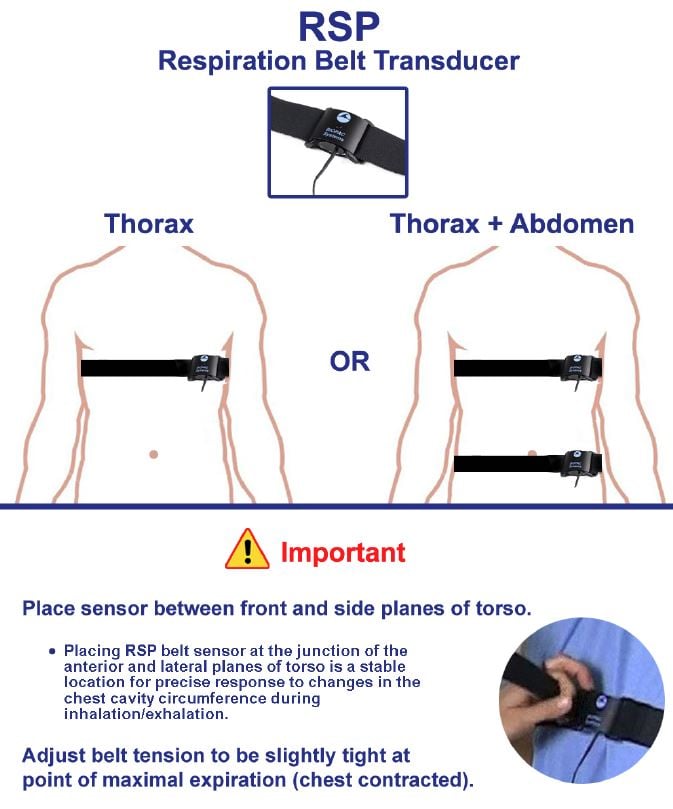
See also:
- TSD221-MRI MR Safe fully-pneumatic respiration transducer measures subject respiration (thoracic or abdominal) in the MRI
Part #: TSD201
Convert biological signals for analysis with MP system or AcqKnowledge®
The TSD201 connects to the RSP100C Respiration Amplifier to record respiratory effort. The transducer measures the changes in thoracic or abdominal circumference that occur as the subject breathes. The design presents minimal resistance to movement and is extremely unobtrusive. Due to its novel construction, the TSD201 can measure arbitrarily slow to very fast respiration patterns with no loss in signal amplitude, while maintaining excellent linearity and minimal hysteresis. The conductance of the gauge is linear with applied linear stretch; for very small linear stretch, the conductance versus stretch is quite linear.
The transducer comes with a 3-meter cable and an adjustable Velcro strap to fit a wide range of subjects. Additional straps available (RX-STRAP-RSP) to allow for disinfection between subjects without any down time—use extra straps with transducer while washing previously worn straps.
See More...
Stay Connected